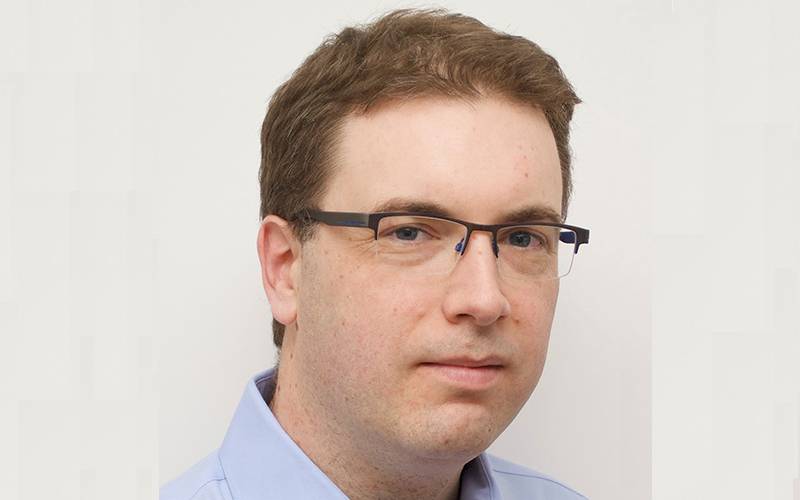This month we speak to Prof Pearse Keane to find out how his research is improving the health of the public.
 What is your role and what does it involve?
What is your role and what does it involve?

I wear a few different hats! I’m a consultant ophthalmologist at Moorfields Eye Hospital in London, where I specialise in the treatment of age-related macular degeneration, the commonest cause of blindness in the UK, USA, and many other countries around the world. I’m also a Professor of Artificial Medical Intelligence at UCL Institute of Ophthalmology. Although I’m not a computer scientist or an engineer, I’ve come to find myself leading a multi-disciplinary clinical research group which aims to lead the development and application of AI in healthcare, both in the UK and globally, using ophthalmology as an exemplar. Finally, I’m Director of the INSIGHT Health Data Research Hub for Eye Health at Moorfields, the world’s largest bioresource for ophthalmic imaging data.
How are you improving the health of the public?
The main focus of my group is using artificial intelligence (AI) to bring world-leading expertise out of specialised centres such as Moorfields and closer to people in their homes and communities. We want to reinvent the eye exam for the 21st Century by detecting the earliest signs of sight threatening disease as part of routine eye tests performed in the high street. We’re also exploring the emerging field of “oculomics” - using the eye as a “window to the body”. In doing so, we hope that a simple eye test can be used to pick up the earliest signs of cardiovascular and neurodegenerative disease!
What do you find most interesting or enjoyable about your work?
For me, being a clinical academic is a dream job! I really enjoy looking after my patients. But I also love having time to think about new ways to prevent blindness. I like the research process of coming up with ideas, figuring out experiments to explore them, and then telling the world about your findings in a scientific paper. I also enjoy the process of translating scientific research findings to actual patient benefit - the most difficult part to achieve!
How have cross-disciplinary collaborations shaped your research?
For me, the magic happens when collaborations can occur across different scientific disciplines and professions, and at the intersection between academia and industry. Much of my work has been shaped by the collaboration I led between Moorfields Eye Hospital and the AI research company, Google Deepmind. More recently, our work on the development of foundation models in healthcare has been driven by collaboration with amazing computer scientists in the Centre for Medical Image Computing (CMIC) at UCL. I’m also very fortunate to be funded by a UKRI Future Leaders Fellowship - personal funding which is specifically aimed at supporting ambitious cross-disciplinary work.
What advice would you offer to others interested in developing cross-disciplinary research?
I think that curiosity about work that’s being done in other disciplines is the most essential thing. It’s very easy to get siloed within our own areas of expertise… but the key to innovation is continuous learning, particularly from others in other areas. I think it’s also important to develop contacts with industry, and start-ups in particular. These can help you learn a lot about real world innovation.
What's next on the research horizon for you?
In September 2023, our group reported in Nature the development of RETFound, one of the first major foundation models in all of healthcare. We hope that this can become a cornerstone for global efforts to use AI to prevent blindness. We’re now working to greatly increase the size and complexity of RETFound, scaling it up with substantially more training data. We hope to go “from 2 million to 20 million” images of training data and believe this could greatly increase its abilities.
If you could make one change in the world today, what would it be?
I firmly believe that the way to kickstart growth in the UK is for the government to increase investment in science, technology and innovation. I think this would be the right strategy to increase prosperity, both in the UK and globally.
 Close
Close

